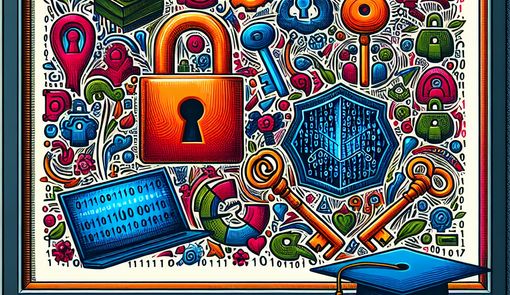Cryptographer
A cryptographer develops algorithms, ciphers and security systems to encrypt sensitive information. They ensure data security against unauthorized access and cyber threats.

Top Articles for Cryptographer
Sample Job Descriptions for Cryptographer
Below are the some sample job descriptions for the different experience levels, where you can find the summary of the role, required skills, qualifications, and responsibilities.
Junior (0-2 years of experience)
Summary of the Role
A junior cryptographer is responsible for supporting the design and analysis of cryptographic algorithms, protocols, and systems. They typically work under the supervision of senior cryptographers and contribute to the development and maintenance of secure communication channels, encryption systems, and data protection strategies.
Required Skills
- Problem-solving skills and ability to think analytically.
- Strong mathematical and algorithmic background.
- Good programming and code analysis skills.
- Keen attention to detail.
- Capacity to learn new cryptographic concepts and techniques quickly.
Qualifications
- Bachelor's degree in Computer Science, Mathematics, or related field.
- Familiarity with cryptographic principles, algorithms, and protocols.
- Basic understanding of secure coding practices and cybersecurity.
- Knowledge of programming languages such as C++, Java, or Python and their use in cryptographic applications.
- Ability to work collaboratively in a team environment.
Responsibilities
- Assist in the development of new cryptographic algorithms and protocols.
- Analyse and improve existing cryptography systems.
- Participate in code reviews and cybersecurity assessments.
- Collaborate with other IT professionals to integrate cryptographic methods into broader security measures.
- Stay updated on the latest developments in cryptographic theory and practice.
- Assist with the documentation of cryptographic procedures and security protocols.
Intermediate (2-5 years of experience)
Summary of the Role
As an intermediate Cryptographer, you will be responsible for designing and implementing secure communication systems to safeguard sensitive information from unauthorized access or cyber threats. You will work closely with a team of security experts to develop encryption algorithms, analyze cryptographic security systems, and maintain the confidentiality, integrity, and availability of data.
Required Skills
- Strong analytical and problem-solving skills.
- Proficient in cryptography theory and applications.
- Skilled in using cryptographic libraries and tools.
- Experience with computer forensics and intrusion detection systems.
- Knowledge of data protection laws and regulations.
- Excellent attention to detail and commitment to security best practices.
- Ability to learn and adapt quickly to new technologies and challenges.
Qualifications
- Bachelor's or Master's degree in Computer Science, Information Security, Mathematics, or a related field.
- At least 2 years of professional experience in cryptography or a closely related field.
- Proven track record of developing and implementing cryptographic systems and algorithms.
- Familiarity with cryptographic protocols and standards such as AES, RSA, ECC, and SSL/TLS.
- Experience with programming languages such as C++, Python, or Java in relation to cryptographic algorithm implementation.
- Understanding of security principles, network security, and application security.
- Solid knowledge of operating systems, databases, and networking.
- Ability to work effectively in a team and communicate complex ideas clearly.
Responsibilities
- Develop, test, and implement encryption algorithms and security protocols.
- Perform cryptographic analysis, including code breaking and threat modeling.
- Work with cross-functional teams to integrate cryptographic solutions into products and services.
- Research new technologies and methodologies in cryptography to enhance existing systems.
- Collaborate with IT professionals to resolve security breaches and implement preventative measures.
- Maintain up-to-date knowledge of industry security standards and compliance regulations.
- Provide technical guidance and support to less experienced team members.
- Document all cryptographic processes and procedures for future reference.
Senior (5+ years of experience)
Summary of the Role
A Senior Cryptographer is responsible for developing secure communication methods to protect information and ensure privacy. This role involves creating cryptographic systems, analyzing encryption algorithms, and contributing to the field's body of knowledge through research and innovation.
Required Skills
- Expertise in encryption algorithms and cryptographic protocols.
- Strong programming skills, including proficiency in C++, Python, or similar languages.
- Excellent problem-solving abilities.
- Ability to work on complex projects with interdisciplinary teams.
- Strong communication skills for explaining complex cryptography concepts.
Qualifications
- Advanced degree in Mathematics, Computer Science, Cryptography, or a related field.
- Proven track record of working on cryptography in a senior position.
- In-depth knowledge of encryption algorithms, cryptographic protocols, and security practices.
- Published research in the field of cryptography.
Responsibilities
- Design and develop advanced cryptographic systems and algorithms.
- Consult with other departments on encryption and security matters.
- Perform security assessments of crypto protocols and implementations.
- Lead research and development projects in the field of cryptography.
- Stay updated with advancements in cryptography and integrate new technologies where applicable.
- Train junior cryptographers and provide guidance on best practices.
- Publish research papers and present findings at conferences.
- Participate in the development of industry standards.
See other roles in Science and Technology and Technology






